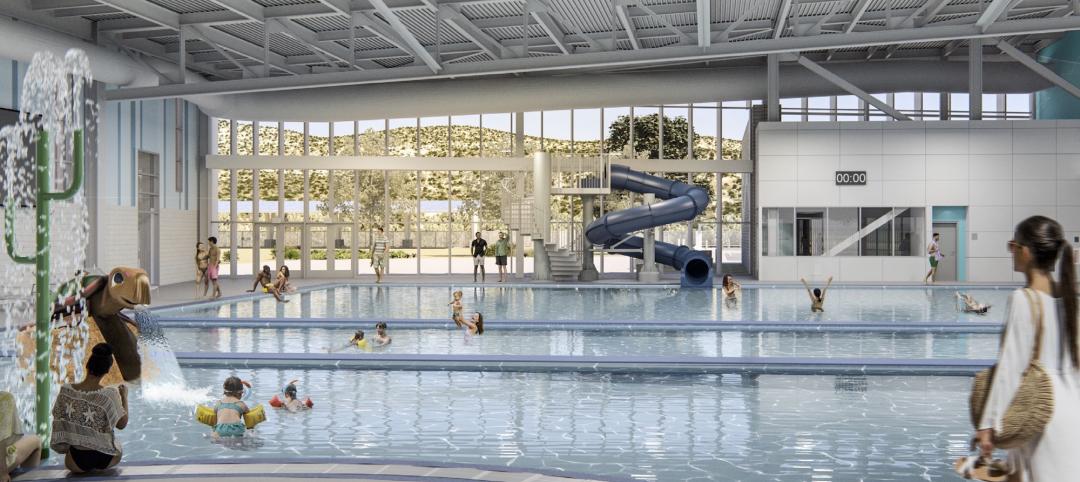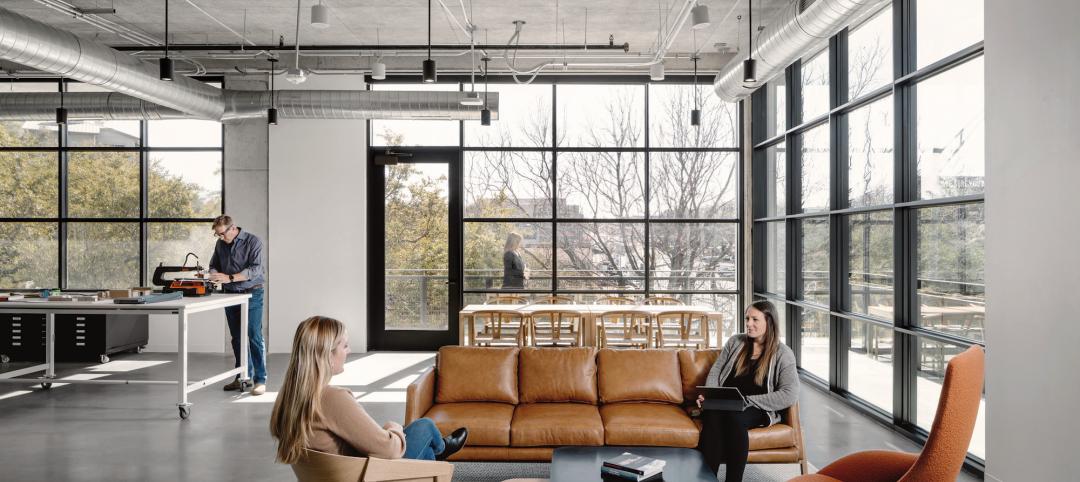Making Veterans Administration healthcare projects “better planned, better delivered” is the new goal of the VA’s Office of Construction and Facilities Management, according to Executive Director Stella S. Fiotes, AIA.
CFM plans, designs, and constructs (with the help of private-sector AEC consultants, of course) all VA projects greater than $10 million in value. The office has responsibility for design construction standards, sustainability, seismic corrections, historic preservation, and physical security.
The VA has a massive portfolio—151 hospitals, 827 community-based outpatient clinics, and 300 veterans’ centers, Fiotes told attendees at the recent American College of Healthcare Architects/AIA Academy of Architecture for Health (ACHA/AAH) Summer Leadership Summit in Chicago. Nearly two-thirds of its facilities are more than 60 years old, and 30% have a historic designation or could qualify for one.Fiotes said the VA is in the midst of a major policy shift, from “figuring out what’s broken and fixing it as much as possible”—a strictly brick-and-mortar approach—to “figuring out what services veterans need and adapting service-delivery models, facilities, and funding distribution to better meet those needs.”
The new policy, known as VA Facilities Management Integrated Planning, is directed at addressing such concerns as the need to right-size facilities based not only on where veterans are today, but where they’ll be in the future, given that many older veterans are expected to move to the warmer regions of the U.S.
Fiotes said the VA is also looking to forge affiliations with public agencies, universities, and healthcare organizations as a way to stretch its capital investment budget. Serving the healthcare needs of veterans in rural areas remains a persistent concern, she said, as does the need for the VA to promote wellness and disease prevention for its clients.
Another major initiative: the Patient-Aligned Care Team. “Primary care is the foundation of VA healthcare delivery,” said Fiotes. PACT is designed to provide “one-stop” patient-centered care through coordinated “teamlets” consisting of a physician, a nurse, an LPN or technician, and a clerk, along with a clinical pharmacist, a dietitian, and a social worker. “No clinics have been designed based on this model, but we’re working on it,” said Fiotes. “We believe they can save 15-20% on costs.”
As for sustainability, Fiotes said all VA projects must earn at least LEED Silver or two Green Globes; every project is evaluated for the feasibility of using renewable energy. Structural resilience, particularly against the threat of rising sea levels or a tsunami, has become a priority as well.
Eight major VA projects—in Las Vegas, Milwaukee, Pittsburgh, San Antonio, San Diego, Cape Coral, Fla., and two in Biloxi, Miss.—will undergo post-occupancy evaluation this fiscal year to determine how well the buildings are meeting the needs of veterans and healthcare providers. Starting in FY 2014, all major projects will experience POEs within 18-24 months of occupancy.
Two innovation programs—selected from over 450 suggestions from Veterans Health Administration employees—are under way: the development of standardized designs for outpatient clinics, and research on making wayfinding in VA facilities consistent across the board.
Fiotes ended her talk to ACHA/AAH attendees on a tempting note: “We have over $6 billion in projects that have been identified and need to be acted on.”
Read our full report from the ACHA/AAH Summit.
Related Stories
Adaptive Reuse | Jul 27, 2023
Number of U.S. adaptive reuse projects jumps to 122,000 from 77,000
The number of adaptive reuse projects in the pipeline grew to a record 122,000 in 2023 from 77,000 registered last year, according to RentCafe’s annual Adaptive Reuse Report. Of the 122,000 apartments currently undergoing conversion, 45,000 are the result of office repurposing, representing 37% of the total, followed by hotels (23% of future projects).
Hotel Facilities | Jul 26, 2023
Hospitality building construction costs for 2023
Data from Gordian breaks down the average cost per square foot for 15-story hotels, restaurants, fast food restaurants, and movie theaters across 10 U.S. cities: Boston, Chicago, Las Vegas, Los Angeles, Miami, New Orleans, New York, Phoenix, Seattle, and Washington, D.C.
Sustainability | Jul 26, 2023
Carbon Neutrality at HKS, with Rand Ekman, Chief Sustainability Officer
Rand Ekman, Chief Sustainability Officer at HKS Inc., discusses the firm's decarbonization strategy and carbon footprint assessment.
Sports and Recreational Facilities | Jul 26, 2023
10 ways public aquatic centers and recreation centers benefit community health
A new report from HMC Architects explores the critical role aquatic centers and recreation centers play in society and how they can make a lasting, positive impact on the people they serve.
Multifamily Housing | Jul 25, 2023
San Francisco seeks proposals for adaptive reuse of underutilized downtown office buildings
The City of San Francisco released a Request For Interest to identify office building conversions that city officials could help expedite with zoning changes, regulatory measures, and financial incentives.
Designers | Jul 25, 2023
The latest 'five in focus' healthcare interior design trends
HMC Architects’ Five in Focus blog series explores the latest trends, ideas, and innovations shaping the future of healthcare design.
Urban Planning | Jul 24, 2023
New York’s new ‘czar of public space’ ramps up pedestrian and bike-friendly projects
Having made considerable strides to make streets more accessible to pedestrians and bikers in recent years, New York City is continuing to build on that momentum. Ya-Ting Liu, the city’s first public realm officer, is shepherding $375 million in funding earmarked for projects intended to make the city more environmentally friendly and boost quality of life.
Market Data | Jul 24, 2023
Leading economists call for 2% increase in building construction spending in 2024
Following a 19.7% surge in spending for commercial, institutional, and industrial buildings in 2023, leading construction industry economists expect spending growth to come back to earth in 2024, according to the July 2023 AIA Consensus Construction Forecast Panel.
Hotel Facilities | Jul 21, 2023
In Phoenix, a former motel transforms into a boutique hotel with a midcentury vibe
The Egyptian Motor Hotel’s 48 guest rooms come with midcentury furnishings ranging from egg chairs to Bluetooth speakers that look like Marshall amplifiers.
Office Buildings | Jul 20, 2023
The co-worker as the new office amenity
Incentivizing, rather than mandating the return to the office, is the key to bringing back happy employees that want to work from the office. Spaces that are designed and curated for human-centric experiences will attract employees back into the workplace, and in turn, make office buildings thrive once again. Perkins&Will’s Wyatt Frantom offers a macro to micro view of the office market and the impact of employees on the future of work.

















